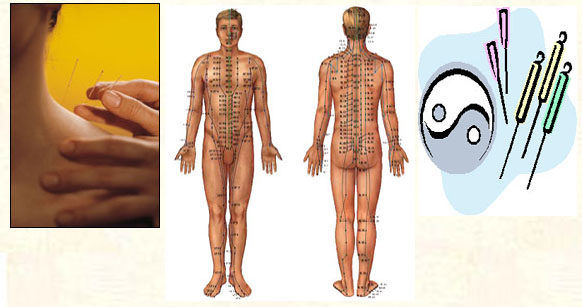
FREE CONSULTATION CALL NOW!
|
The Power of the Outline: In the course of a day, I use outlines in so many helpful ways that the practice has become second nature to me. Therefore I am always surprised by the alarm and resistance outlines can trigger in others. Recently I witnessed the outline panic phenomenon once again during a discussion with a publisher about a new-product brochure. When I asked whether she had used an outline to create her rough draft, she reacted as if I’d just offered her a two-week vacation in hell! My article describes how to think positively about using outlines so you’ll be sure to get all the benefits they can bring you. As an outline ambassador, I ask that skeptics read this piece with open minds. And for those who are not outline-resistant, my intent is to offer some new ideas and perspectives, as well as friendly reminders. The Outline, Defined To me, the best outlines are a quick take on something -- whether it’s a chapter of a book, my plan for the day, or the structure of a presentation or meeting. Basically an outline is an overview of your major points. It includes enough detail to be meaningful, but not so much that you get bogged down. Working on the computer, I like to use a simple outline format with a hierarchy of three levels – numbers -- 1, 2, 3, etc. -- for items in Level One; small letters -- a, b, c, etc. -- for items in Level Two; and numbers in parentheses -- (1), (2), (3), etc. -- for items in Level Three. I don’t always use all three levels, but they’re in my scheme of things in case I need them. The fact that I don’t use Roman numerals reflects the informality in my approach. With simplicity in mind, I recommend using only a word, a phrase, or a sentence at each level -- nothing more. Also, occasionally on deadline, my outline is only a mental picture, not something I’ve typed up or written down. You might prefer other outlining methods. Some people jot their points on notecards, limiting content for each card to one idea. With notecards, changing the order is as easy as reshuffling the deck. If you want to group related points or use levels, colored notecards can fill the bill. Or mindmapping might appeal to you. Here you scribble your main idea in a circle at the center of a piece of paper, sketch spokes out to related items, and then draw branches to a third level of ideas. (For an example of a mindmap, go to http://www.jcu.edu.au/studying/services/studyskills/mindmap/moreabout.html.) In any case, the goal is to provide yourself with the big picture, plus the major pieces of the puzzle you’re currently trying to solve. A Flexible Friend I suspect that a major cause of outline phobia is a fear of being obligated to follow a rigid plan. Actually, there have been times when I’ve abandoned the flow of my outline completely (such as during a meeting). And I also regularly add relevant items that surface along the way, for instance during a talk or when writing a chapter. Truth be told, the beauty of an outline is that it can be revised as often as you’d like, and at any stage as you progress. This is because it’s much easier to re-do an outline than a detailed description of whatever you’re dealing with, or the entire thing itself. A Clarifier Developing an outline gives you an opportunity to think things through. What do you want to accomplish with this piece of writing or this activity? If you’ll be writing or speaking, what points will be most relevant to your audience? If you’re trying to make a decision, what are the most critical factors? What do you want to leave in, take out, or move around in the outline? Where are the connections between your points? Are you ready to go for it with this outline, or do you want to take some time for your thoughts to brew and then re-work the outline first? An Organizer Outlines are known for keeping people organized and their ideas or goals clear. As you develop your outline, ask yourself which order or priority makes the most sense. Some helpful organizing principles are: (1) chronological, (2) thematic, (3) general to specific, (4) pros and cons, (5) compare and contrast, (6) “free flow” thought, and so on. Remember that your outline can be adapted to another format later if you want to re-think your approach. A Time-Conserver These days, having enough time is a challenge for most of us. Readily, an outline can save you minutes, hours and even days. You’ll know where you’re going and how you want to get there so you’ll be less likely to get caught up by unimportant tangents. Gazing at the big picture that an outline provides will make it easier to see what to eliminate. Responsibilities can feel less burdensome because an outline provides a strong sense of your priorities. A Motivator On those hard-to-get-going days, outlining a particular project or an attack plan for your overall activities will give you a sense of forward motion. As evidence of your productivity, the outline will inspire you. And you don’t have to resort to this motivational strategy just at the beginning of a project. Outlining at different stages allows you to get psyched about what’s before you once again. Plus you can gleefully check off items on the outline as you move through it. A Life-Saver So the next time you feel as though you might drown in an ocean of words, ideas, options, or responsibilities, consider reaching for an outline as your life preserver. A powerful and buoyant outline has kept me padding ahead on course time after time. Soon, with the insights you gain by outlining, life will be in focus once again and you’ll be back in control. More articles by Robin Quinn are on this site.
|
"Great attitude and amazing talent!"
Patricia Fitzgerald, The Detox Solution
 "I wanted the best editor... so I took The Self-Publishing Manual to Robin Quinn."
Dan Poynter, Para Publishing
 "Robin Quinn is a very talented writer."
Ghost client, alternative health title
 "Working with Robin was such a pleasure. I look forward to working with her again."
Ghost client, spirituality title
|






